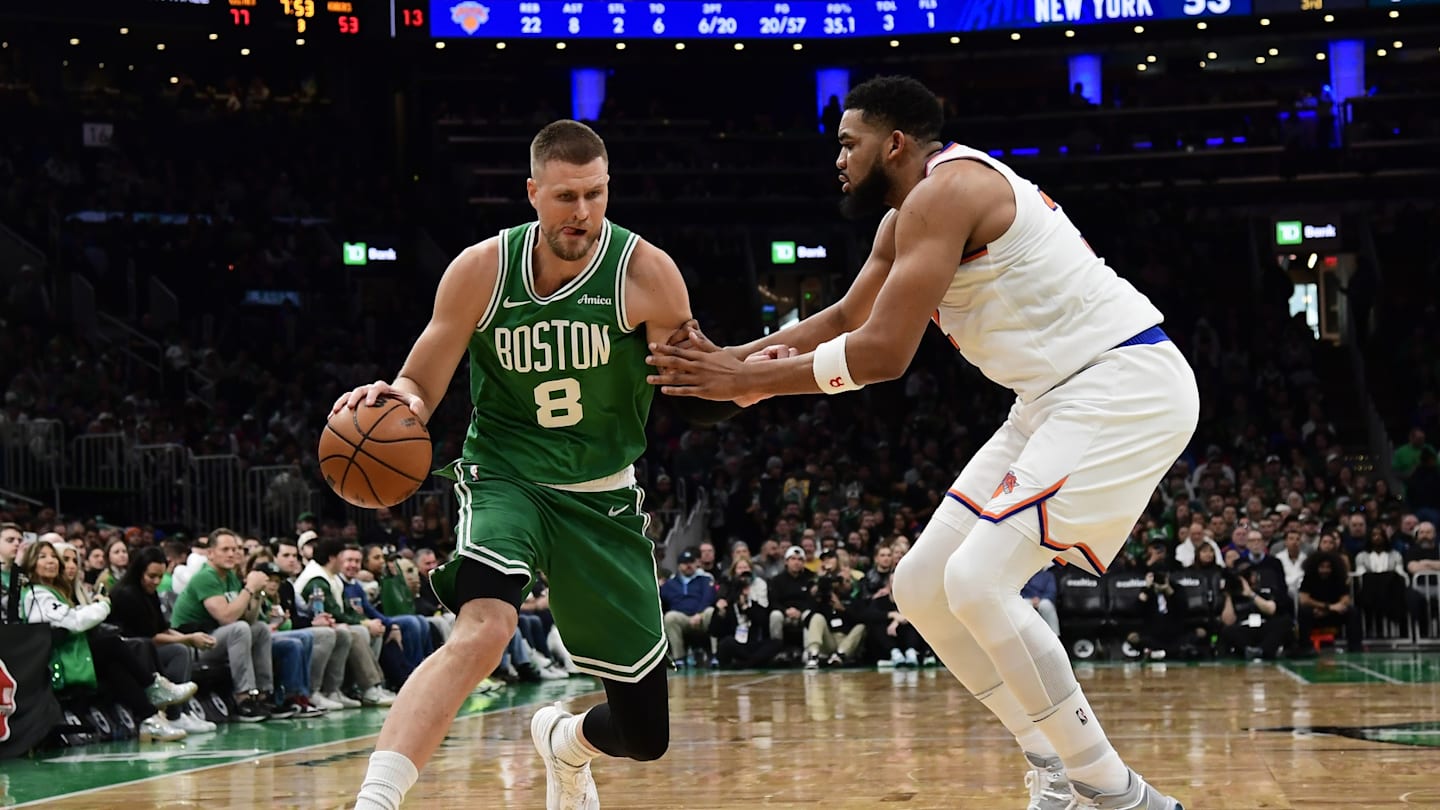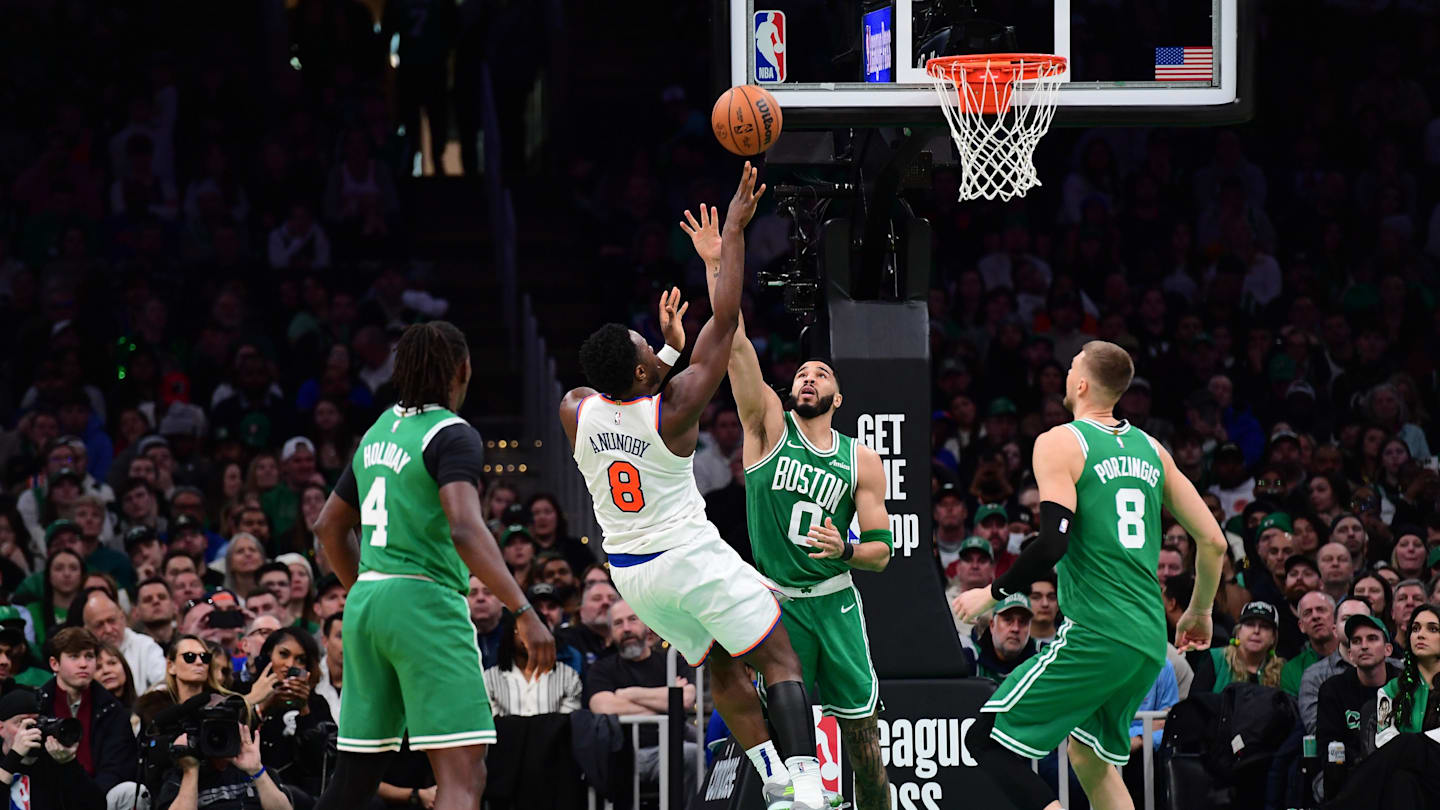Rules Changes to Make the NBA Better

The NBA is a healthy league, raking in billions of dollars from a style of basketball that, while not seamless, at least keeps scoring and highlight play coming aplenty. No system is perfect, however. Today’s Blazer’s Edge Mailbag asks what we would change about the league if we were allowed. Let’s take a look.
Hi Dave,
You are given the power to improve the NBA by changing two things:
One on-court basketball rule. Erase a rule, add one, move the lines around, add a 4-point shot, remove the foul limit, whatever you want.
One off-court NBA rule. For example, remove the salary cap or make it a hard cap, allow unbalanced trades, move or remove the trade deadline, etc.
Why does this make the NBA better and what would the long-term impact be?
Thanks,
—J
For me, the on-court rule is easy. The three-point shot has changed the game so profoundly that entire classes of players—most notably bruising centers and power forwards—have become obsolete in favor of quick guards and skilled shooters. I’m not objecting entirely. I just think the balance needs to shift back a bit.
I would definitely not add a four-point shot. It seems gimmicky and will likely increase the problem as new generations of players adjust to shooting even deeper. Besides, it’s odd, according to the maths. A three-point shot is worth 50% more than a two-point shot. But a four-point shot is worth only 33% more than a three-point shot. You could create five-, six-, seven-point shots too. Each increase in distance and decrease in percentage advantage (both in accuracy and point-production) will lessen the impact of the move.
Instead I think—I say think, because I need to figure out the implications—that I’d make the three-point arc stretch across the top of the floor only, eliminating threes along the sideline altogether. I might move it out farther as well, making the shot slightly more difficult. This would make any shot closer than 23 feet worth two points. That would return some strategy to halfcourt play, including post work, offensive rebounds, and drawing fouls. Catch-and-shoot players on the edge of the court would still have value to keep the floor spread, but they wouldn’t overpower the game.
This would slow down the game a little, putting a premium on footwork, technique, and interior scoring instead of just fast ball movement and shooting. I’m ok with that. Once upon a time, the NBA was a Michelin-starred restaurant, with offenses designed and choreographed by expert chefs. Each possession was a potential masterpiece. Today’s offense is pure fast food: crank out as many cheap and efficient shots as possible and let statistical probability win games for you. Shooting 80 threes at 37% beats shooting 60 twos at 50% every time, regardless of the talent of the players involved. I don’t think we need to return to the era of plod-ball centers dominating the court, but I’d like to see 7-footers playing in the lane instead of becoming de facto wings shooting on the perimeter against an open court. (Pointedly not looking at San Antonio here.)
Off-court, I still think the Draft Lottery needs to be “smoothed” as I describe here, easing teams’ entry and exit into the lottery reaches. My proposal was to weigh record from the last three seasons while determining odds, making it harder for a team to lose big one year, jump immediately into prime position, snag a superstar, then laugh their way to a generation of wins off of one lucky bounce. (Pointedly *not* looking at San Antonio here.) With weighted records, the best lottery odds would slant towards teams that has lost 2-3 years straight. They’d probably get a couple shots at nice picks before exiting, unless they won big and got out of the lottery immediately, in which case, problem solved.
This is a good discussion question, though. What on-court and off-court changes do you think would benefit the league most and why? Share in the comments section below!
Thanks for the question! You all can send yours to blazersub@gmail.com and we’ll try to answer as many as possible!
Related
NBA: Mark Cuban says he would have asked for more…
Feb 13, 2025; Dallas, Texas, USA; Mark Cuban laughs during the second half of the game between the Dallas Mavericks and Miami Heat at American Airlines
NBA Scout Reveals Why Celtics Can Easily Beats Knicks in…
The Boston Celtics are one of the teams who are expected to be a contender at the end of the season. They are the defending NBA champions, so they feel like the
Nikola Jokić gives peak Nikola Jokić interview with Scott Van…
Nikola Jokić is still rewriting the record books — and treating it like just another day at the office. In a 149-141 overtime win over the Phoenix Suns
Knicks’ Struggles vs. NBA’s Elite Explained
The New York Knicks are one of the best teams in the NBA, but as of late, they have been defined more by their struggles than their triumphs.The Knicks are 0-7











